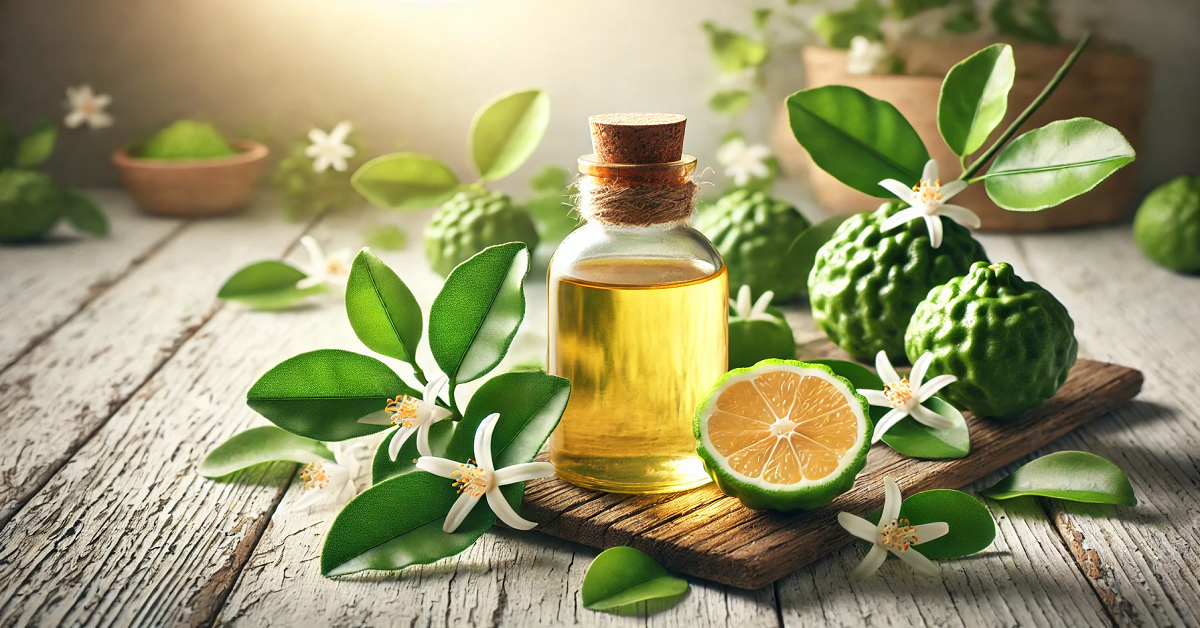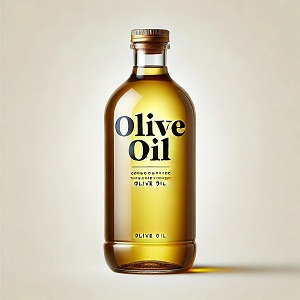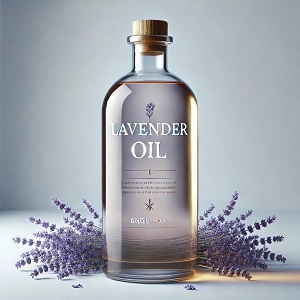
What is Bergamot Oil?
Bergamot oil is an essential oil extracted from the peel of the bergamot orange, a unique citrus fruit with a pleasant, fragrant scent that combines hints of lemon and orange and a light floral profile.
Bergamot oil, native to the Mediterranean region (mostly harvested in Italy), has been utilized for centuries for its numerous usages and health benefits. While bergamot oil is for its uplifting aroma, like many other citrus oils, it is also a candidate for health and wellness use.
It contains natural components such as linalool, limonene, and linalyl acetate that contribute to its anti-inflammatory, antibacterial, and sedative effects.
Consequently, thanks to its inimitable, captivating scent, bergamot oil has become a well-known addition to perfumes and cosmetics formulations. On a global scale, it awakens the senses while providing countless physical benefits.
Table of Contents
Now, when asking if you can eat bergamot oil, you must note that it is between the oil grades. Although bergamot oil is the flavoring agent in Earl Grey tea, people still need to ensure the oil they are ingesting is food-grade.
Bergamot should never be used with this oil because its high potency may cause severe reactions even when diluted. Even food-grade bergamot oil can give food a citrusy, aromatic zing, but due to its potency, in small quantities.
Generally, bergamot oil should only be consumed with professional supervision, especially when purchased as an essential oil bottle without food-grade approval. When used correctly, edible bergamot oil can be a lovely aromatic addition to tea, desserts, or even some savory dishes!
My Experience with Bergamot Oil
My first encounter with bergamot oil was through its scent. At that point, I was covered from head to toe in a vividly green, subtly floral fragrance that almost instantly cheered me up. I used it in a diffuser, changing the room into a peaceful space where I could relax.
My first impression when I applied bergamot oil to my skin was: Wow, the first bit where I put it feels nice, calm, and soothing. Bergamot helps soothe and hydrate my skin; even with a carrier oil, my skin feels lovely and supple. It was a pleasure to discover that constant usage reduced the visibility of spots and left my skin radiant.
Weeks passed, and I realized that now and then, I would catch a whiff of the fragrance lurking on my skin and hair, giving me the impression it worked like a natural perfume that attracted compliments. My friends would ask me what I was wearing, and it felt nice to share my experience of the different types of bergamot oil.
Body paragraph six: Looking back on my experience with bergamot oil, my wellness routine would not be complete without it. Incorporating it into my skincare and hair care routine or just using it as a relaxing environment has enriched my rituals in everyday life. This oil has been a staple in my life due to its versatility.
They include the following: Is Bergamot oil for everyone?
Although bergamot oil is typically safe for people of nearly any age, including children, older people, and those with sensitive skin, because it is robust, use a carrier oil before applying it to children’s skin or those with a lower tolerance.
Some research indicates that bergamot oil can increase skin sensitivity to sunlight (photosensitivity) (3). So, if bergamot oil is applied externally, it is best to avoid direct sunlight. When diluted and used carefully, bergamot oil is a gentle and helpful oil for many wellness practices, from stress relief to skincare, and even for seniors who may enjoy its therapeutic scent.
Utility of Bergamot Oil
The health benefits of bergamot oil extend beyond the pleasant aroma. It is also known for mental support by lowering anxiety and stress because it can feed serotonin and dopamine secretion.
It is beneficial for people living with arthritis, and its anti-inflammatory properties help people who are attempting to manage skin irritation; it can alleviate sore muscles. Effect on Digestive Health- Bergamot oil has to prevent indigestion when used in aromatherapy.
Others have even pointed to possible cardio perks, such as aiding blood pressure hoses and heart health. Bergamot oil is a PEA-based alternative that can provide deftly holistic support to mental and physical health when incorporated into a planned wellness routine.
Advantages for Skin and Hair
Bergamot oil is antibacterial and antifungal in skin care, making it a natural treatment suitable for acne-prone or sensitive skin. It can be a spot treatment applied to blemishes or diluted for general rooting of the whole skin.
Bergamot oil is a natural conditioner that leaves hair shinier and less frizzy and supports a healthy scalp. In haircare, it serves as a refreshing element, boosting hair towards a more nutritious, shinier end.
When used primarily on the skin, it promotes naturally healthy skin and adds moisture and strength to hair, making it perfect for those who want to up their self-care game.
How to Use Bergamot Oil
However, Bergamot oil can be used in multiple ways, depending on your goal. You can use it for aromatherapy by adding a few drops into a diffuser for an ambient stress-relieving environment.
Consider sensitive skin, particularly on the face, before applying topical coconut or jojoba oil. You can use a few drops in your bath as a nice soak or mix it into lotions and serums yourself! Bergamot oil is also a common perfumery ingredient and blends well with oils such as lavender and rosemary.
It can also be in cooking, with a certified food-grade version added to teas or desserts to lend a bright citrus flavor.
Benefits of Bergamot oil
Bouquet for Lively Escapade: Enhancer of mood and stress reducer.
Antibacterial benefits: Help kill bacteria on the skin, which is helpful for people with acne-prone skin.
Hair Health: It keeps the hair shiny and strong and smoothens frizz.
Wide Range of Uses: It can for aromatherapy, skincare, haircare, and even some prepared foods.
Rich in anti-oxidation, which protects the skin and body from oxidative stress
Scientific Research on Bergamot Oil
Stress Management: In clinical trials, bergamot essential oil has reduced cortisol levels by over 50%18, making it a natural alternative to managing stress.
Skin Benefits: Bergamot oil appears to possess antibacterial properties, and studies have shown that it may be effective against acne
Pennation indicates that Bergamot oil relieves pain and reduces inflammation when applied topically.
Works At HeartHealth: Bergamot oil shows promise in promoting heart health by balancing blood pressure.
Antioxidant Benefits: Bergamot oil is full of antioxidants that can fight free radicals and prevent oxidative damage in the body.
Pros and Cons
Pros:
It has a natural and uplifting scent.
Good for skin and hair.
Cons:
Photosensitivity May occur; avoid sunlight!
It needs to be applied to the skin so that it does not cause any irritation.
Must be food-grade for consumption
Advice for the Reader
If you are new to essential oils, always start with smaller amounts of bergamot oil and check how your skin and mood respond.
2nd line: Add Bergamot Oil to your Aroma Practice. This transformative scent soothes the soul, especially during the day.
Third Paragraph: When using or applying bergamot oil to the skin, dilute it with a carrier oil to minimize the risk of irritation. Use it in your evening skincare regimen for a salubrious touch.
Add bergamot oil, like this one, to your hair care products. A few drops in your hair conditioner or mask will help make your hair shiny and healthy.
Bergamot oil can be a great addition to any daily routine for anyone needing mental clarity and relaxation, creating a peaceful atmosphere and lifting the spirit (Jiang et al. more_vertAssistant Menu Researchgta hover)}})
Table Recipe Ingredients List
Recipe Ingredients
Face Serum: 2 tablespoons of Jojoba oil, 4 drops of bergamot oil
Hair mask 3 tbsp coconut oil–3 drops bergamot oil.”–2 drops rosemary oil
Aromatherapy: 5 drops of bergamot essential oil, four drops of lavender essential oil, water from a diffuser
Final thoughts: Bergamot Oil
Bergamot oil means luxury and wellness in one bottle with mood, beauty, and wellness boosters in one dash. The added benefit is that it will smell great, and the researchers will back it up to the hilt! Bergamot oil is a symbol of optimism that people can resort to, and it serves them from relieving stress and glowing skin to sparkling and healthy hair shine.
Its wide variety of uses and pleasant scent make it the perfect option for individuals looking for natural, practical solutions for beauty and mental health. Bergamot oil is another natural wonder that lends itself to a product we can harness the best mother nature offers, and it should only bring benefits.
FAQ Section
What are the main advantages of bergamot oil?
Bergamot oil is known for its relaxing properties and positive effects on mood, and it can also be beneficial for skin and hair.
Can I use bergamot oil daily?
That is true, but consider diluting it with a carrier oil for everyday usage to avoid irritability.
Bergamot oil safety for sensitive skin
However, it must always be diluted, especially for sensitive skin.
Emotional Issues and Bergamot Oil: Is it a cure for anxiety?
Research indicates that bergamot oil is relaxing and can ease anxiety.
Is it safe to mix bergamot oil with shampoo?
Yes, a few drops increase the effectiveness of your shampoo and your scent.
Bergamot oil is considered safe for temporary use during pregnancy if diluted well and used short-term among the general population
Essential oils may hurt people, so if they do, consult with a healthcare professional before use.
Bergamot oil acne treatment: How do you use bergamot oil for acne?
Indeed, it does have antibacterial properties that may reduce acne.
Is bergamot essential oil safe for aromatherapy?
Absolutely! It is aromatherapy for its uplifting qualities.
How can I determine whether or not my bergamot oil is fit to be consumed?
Check for clear labeling that the oil is for consumption.
Review Summary in Brief
With its bright aroma and versatility for wellness, bergamot oil is an excellent addition to any wellness routine. Valerian Root is mainly known for its calming effect on the mind; it is also suitable for skin and hair. In skin care, it brightens skin and even fades blemishes. In hair care, it makes hair shiny and adds manageability.
The oil’s benefits are not limited to beauty; it provides mental clarity and relaxation with aromatherapy benefits. The oil is usually safe but should be for sensitive skin, and it is only safe to ingest if it is food-grade. In sum, bergamot is a product that infuses everyday life with the vitality of nature and allows everyone to use it to improve wellness.


